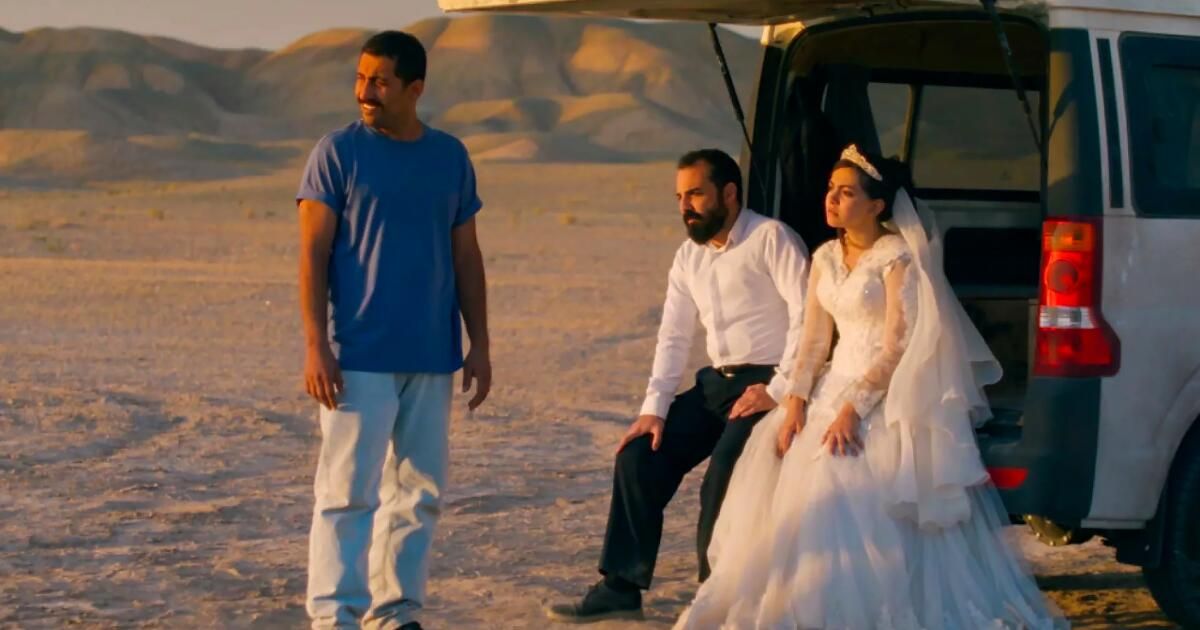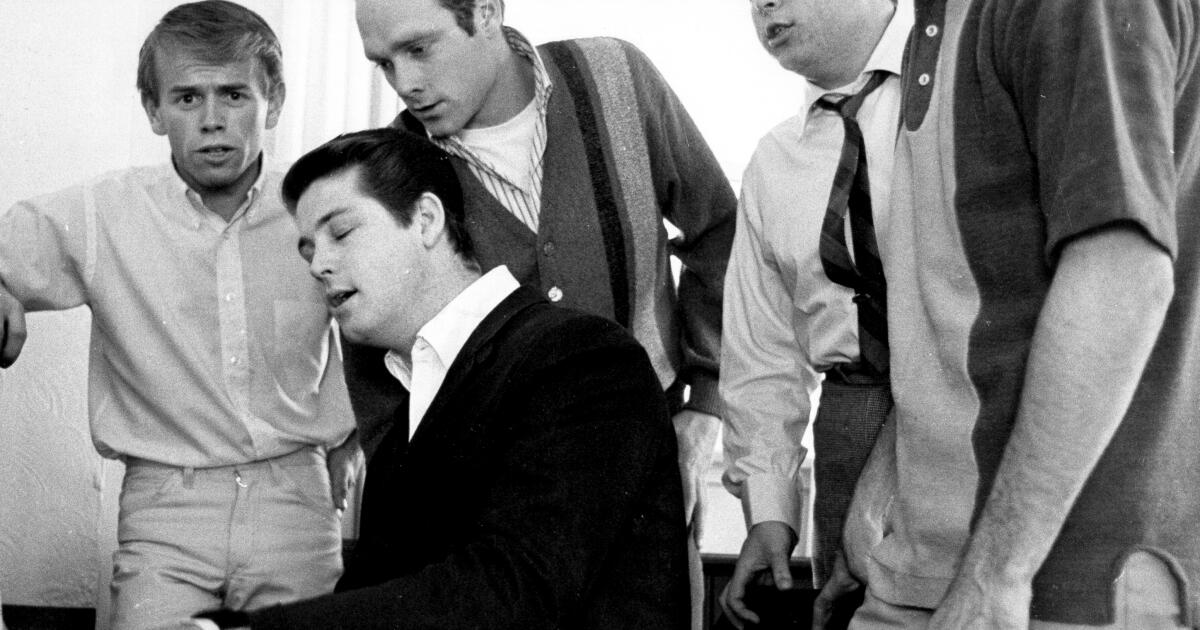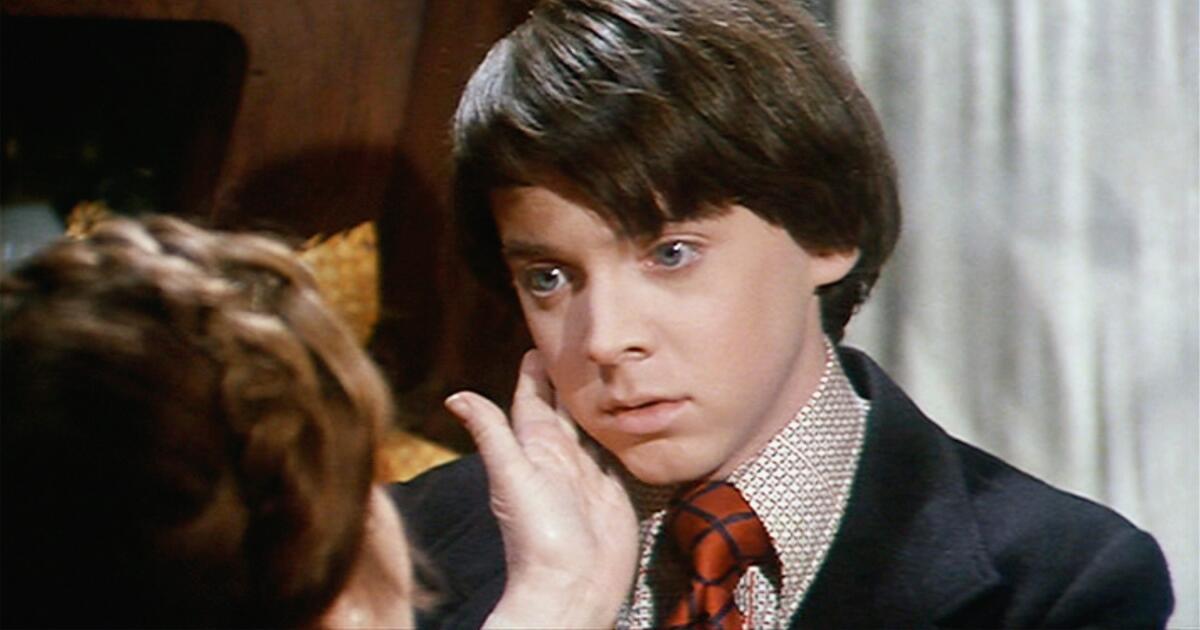“It Was Just an Accident” begins with a misdirection and it won't be the last. For the first eight minutes of the film, we are immersed in the life of Rashad (Ebrahim Azizi), an ordinary Iranian who drives all night with his young daughter and pregnant wife.
Suddenly, the silence is broken by a lurch from the car and a thud. Rashad quickly realizes that, in the middle of nowhere, he has hit a dog and now his car is sputtering and stalling. In desperation, he manages to find a lonely repair shop. But Jafar Panahi's incisive drama, which won the Palme d'Or at Cannes, is not really about Rashad. Soon, he will take a backseat to the film's actual main characters. It turns out that Rashad is our villain. Well, maybe. Revenge can be a complicated thing.
Over the past 15 years, Panahi has probably spent considerable time thinking about the relative merits of compensation. Imprisoned twice by the Iranian government during that period on the ridiculous grounds that he was carrying out “propaganda against the state,” the celebrated 65-year-old writer and director has subsequently made several films in secret, defying a ban that he has cleverly evaded and openly mocked. (The first of those illegal films, released in 2011 when he sneaked out of Iran on a USB stick, blatantly bore the title “This Is Not a Movie.”) Since then, his work has grappled with his suffocating new reality (he was also banned from leaving the country for more than a decade) through narratives that address paranoia and oppression.
“It Was Just an Accident” addresses these themes as directly as any of his post-incarceration films, though not initially. When Rashad arrives at that repair shop, the story shifts perspective and introduces us to Vahid (Vahid Mobasseri), a mechanic who is surprised when he hears a familiar squeaking noise once Rashad starts pacing back and forth. Vahid hasn't seen Rashad, but that distinctive sound triggers traumatic memories: somehow he knows this man. Shortly after, Vahid kidnaps him.
Cut to a grave Vahid has dug in the desert into which he throws Rashad, blindfolded, bound and terrified. Vahid tells him that he knows his name is not Rashad. It's Eghbal, or “Peg Leg,” a nickname in honor of his prosthetic leg that squeaked every time he moved. This is the government lackey who tortured him years before. Vahid may have been blindfolded during those grueling interrogations, but he will never forget that sound. And now Rashad must die.
Despite his artificial leg, Rashad insists that Vahid is wrong and pleads for his life. With his back and kidney problems, Vahid seems fundamentally broken (his imprisonment clearly caused irreparable damage) and begins to doubt himself. What if he has captured an innocent man? Knocking Rashad unconscious and stuffing him into a trunk in the back of his truck, Vahid quickly drives around town looking for others who were tortured by Peg Leg. They include Golrokh (Hadis Pakbaten), who approaches her wedding day, dressed in her dress for photos; estranged former lovers Shiva (Mariam Afshari) and Hamid (Mohamad Ali Elyasmehr); and Golrokh's fiancé Ali (Panahi's nephew Majid), who was not detained but mistakenly believes he knows everything his future wife endured in prison.
They form a strange brotherhood, unhappy at remembering the horror they share. But none of them are entirely sure that Rashad is Peg Leg (they've never seen her face), although Hamid swears he recognizes his tormentor's bad breath. The others express doubts about killing someone on a hunch. Hamid, with a volcanic temperament, wants justice now.
In a film filled with intense emotions and anxious uncertainty, “It Was Just an Accident” (which is France's contender for the international film Oscar) slips between genres, too slippery to be nailed down. Panahi dabbles in the road movie, the revenge thriller, and even the “get the band back together” comedy. There's also a stray reference to “Waiting for Godot,” and like Beckett's classic work, Panahi's film is elemental, every discrete moment packed with meaning. As he has often done, the writer-director works with a largely non-professional cast, heightening the sense of everyday life torn apart by a brutal regime.
Panahi has a knack for linking simple narratives to broader political and social issues. (Their entertaining 2006 film, “Offside,” was based on some determined young women trying to attend a soccer match, which is prohibited for them due to gender apartheid in Iran.) “It Was Just an Accident” convincingly challenges our confidence in what we are seeing as these characters debate what should be done. Could the mild-mannered Rashad really be a torturer? Should Hamid's righteous fury or Vahid's rationality prevail? In the end, Rashad is not only invisible on screen but also immaterial, and Panahi turns the kidnapping into something much more complicated: a meditation on how a country's citizens can overcome the cruelty inflicted by those in power. Killing Rashad won't stop Iran's regime, but perhaps it can provide some comfort.
With its deft use of long takes during scenes of sustained intensity, “It Was Just an Accident” is meticulously composed while exuding an air of spontaneity. Perhaps inevitably, the moral drama is somewhat limited by its central mystery: either Rashad is Peg Leg or he is not. But if “It Was Just an Accident” lacks the conceptual audacity of Panahi’s “This Is Not a Movie” or 2022’s “No Bears,” the film’s straightforward narrative proves to be just another feint, disguising the writer-director’s anger and pain at his own mistreatment and that of so many Iranians.
Indeed, “It Was Just an Accident” could be seen as Panahi's attempt to resolve his own conflicting responses to his imprisonment, with different characters giving voice to his conflicting feelings. In due time, the audience will discover the truth about Rashad, leading to an ambiguous final scene that is as disturbing as the sound of a car hitting a dog. Revenge can be a complicated thing. You can also try to turn the page.
'It was just an accident'
In Persian, with subtitles.
Classified: PG-13, for thematic elements, violence, strong language and smoking.
Execution time: 1 hour, 45 minutes
Playing: In limited release












